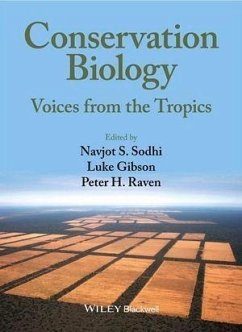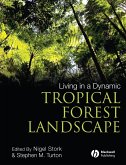The late Navjot Sodhi conceived this book as a way of bringing to the forefront of our conservation planning for the tropics the views of people who were actually working and living there. In its 31 chapters, 55 authors present their views on the conservation problems they face and how they deal with them. Effective long term conservation in the tropics requires the full participation of local people, organizations and governments. The human population of tropical countries is expected to grow by more than 2.5 billion people over the next several decades, with expectations of increased consumption levels growing even more rapidly than population levels; clearly there will be a need for more trained conservationists and biologists. Significant levels of local involvement are essential to conservation success, with the rights of local people fully recognized, protected and fostered by governmental and international assistance. Overarching conservation plans are necessary, but cannot in themselves lead to success. The individual experiences presented in the pages of this book will provide useful models that may serve to build better and more sustainable lives for the people who live in the tropics and lead to the continued survival of as many species and functioning ecosystems as possible.
Dieser Download kann aus rechtlichen Gründen nur mit Rechnungsadresse in A, B, BG, CY, CZ, D, DK, EW, E, FIN, F, GR, HR, H, IRL, I, LT, L, LR, M, NL, PL, P, R, S, SLO, SK ausgeliefert werden.









